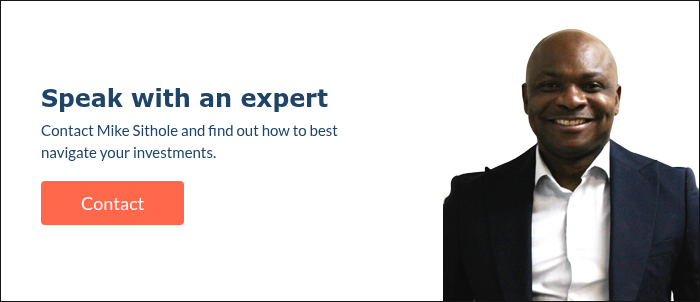There is an ancient belief in the “evil eye”, going back to 3,000 BC and Ancient Mesopotamia – the idea that being looked at with envy or attention can bring about misfortune or bad luck. Over the many years I have managed wealth for clients, I have noticed a modern parallel to this idea. When individuals suddenly come into a large sum of money, their initial excitement is often tempered by a deep sense of apprehension. They fear spending it all too quickly, making irreversible financial missteps or falling victim to fraud or theft that robs them of all their money. This fear is akin to the belief in the ‘evil eye’, suggesting that their newfound wealth, simply by being visible, invites misfortune.
These worries make sense. The easier it is to access your money, the easier it is to spend it carelessly. For example, many people who get money from Road Accident Fund (RAF) claims or who receive medical negligence payouts find this out the hard way. Even though the money is meant to help them for the rest of their life, some end up spending it all in just a few months or years.
Why does this happen? Sometimes, claimants do not want to listen to good advice. Most have never had such a significant lump sum in their bank account, so they do not realise how tricky it can be to manage, especially since this money has to sustain them for life. They feel confident they can handle it, but then, after just a few months, the money is gone— and with it, their chance at financial security. Sadly, once the money is gone, many are left struggling and dependent on others.
The real problem
According to the Human Sciences Research Council (HRC) Financial Literacy in South Africa Survey, 2015, only about half of South Africans understand how to manage money well. Financial literacy means knowing how to budget, save, and invest so you can make smart choices and avoid mistakes. But nearly half of the people in South Africa do not have these skills, making it easy to make bad decisions.
Another challenge is human nature. When people suddenly get a lot of money, they often get excited, feel like they are “millionaires”, and frequently overestimate their ability to invest the money responsibly so that it sustains them for life. Also, it is hard to say no to yourself when tempted to spend or to friends and family asking for money.
Because of these problems, having honest and skilled financial advisors is more important than ever. A financial advisor can help you understand your financial situation, set realistic goals, and develop a plan to achieve them. They can also provide guidance on investment options, risk management, and tax planning, helping you make informed decisions about your money.
Common ways money gets wasted
- Keeping the money in a bank where it earns very little interest.
- Giving away too much to family or friends.
- Buying expensive luxury items that they do not need.
- Falling for bad financial advice from people who want to take advantage of you.
- Putting money into risky investments, hoping to get rich fast.
How your lawyer can help
Once your lawyer finishes your claim and gets paid, it might seem like their job is done. However, lawyers can help by alerting you to the importance of obtaining regulated advice from a licensed Financial Services Provider (FSP); they should not themselves provide investment advice unless authorised under the Financial Advisory and Intermediary Services Act (FAIS). Attorneys who are not licensed under FAIS may not provide personal investment recommendations, but can guide you toward a qualified financial planner.
Conclusion
Getting a large payout after an accident or injury can feel like winning the lottery, but it also comes with risks. It is only when that payout is well managed that it can allow you to build a lifelong safety net. By learning about money, avoiding common traps, and working with trusted advisors, you can protect your financial future and live with confidence. Remember, your claim is just the first step — how you handle the money afterwards shapes your whole life.





